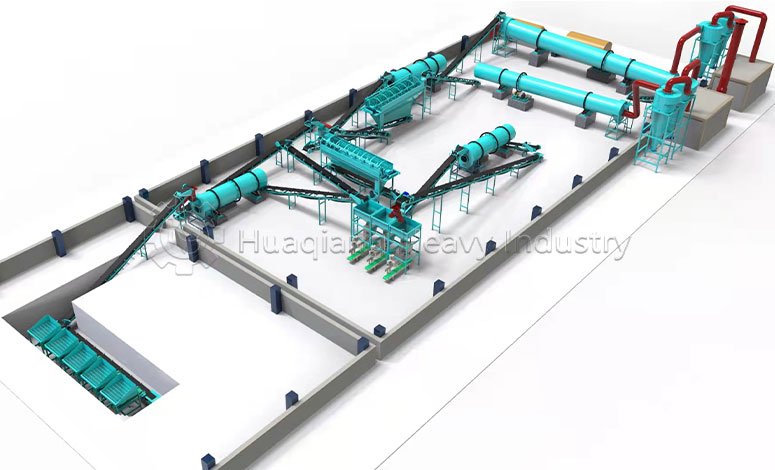Moisture proofing adaptation techniques for organic fertilizer production lines
During the rainy season, humidity is high, and organic fertilizer raw materials easily absorb moisture and clump together. This can lead to production line blockages and slow fermentation if not carefully considered. In fact, smooth production can be achieved by making three moisture-proof adjustments to the organic fertilizer production line.
Include a moisture control step in the pretreatment process. Install a small drying device before the pulverizer to reduce the moisture content of raw materials such as straw and manure from over 65% to 55%-60%, preventing wet materials from sticking to the pulverizer blades.
Add a moisture detector to the mixer outlet. If the raw materials are too wet, it will automatically prompt the addition of dry sawdust, eliminating the need for empirical judgment and reducing the risk of subsequent granulation blockages.
The fermentation process requires both rain protection and ventilation. Build a simple canopy over the fermentation pile to prevent rain from directly falling on it. After each turning, place a layer of dry straw on the surface of the pile. This absorbs moisture and allows for ventilation inside the pile, preventing stagnation. If the humidity in your workshop exceeds 80%, install several industrial fans in the fermentation area to improve air circulation and prevent the fermentation cycle from being extended during the rainy season.
The pelletizing process requires timely cleaning. During the rainy season, raw materials are prone to sticking to the pelletizer’s ring die. Every two hours of production, stop the fertilizer granulator and use a special scraper to clean the sticky material from the die holes. Don’t wait until it accumulates.
The conveyor belt at the discharge port can be covered with an anti-stick mat to prevent pellets from sticking, reducing cleaning time. With these adjustments, your organic fertilizer production line can operate as efficiently as normal during the rainy season, eliminating the need to worry about wet raw materials and slow fermentation.
